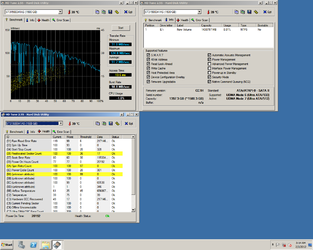- Joined
- Aug 18, 2010
- Location
- Dallas/Fort-Worth
Uh oh indeed. Now you have to start all over on all of your tests. 
Welcome to Overclockers Forums! Join us to reply in threads, receive reduced ads, and to customize your site experience!
According to the instructions that I followed for this exact card, it says it will pass through SMART data and people were even reporting this. I don't get it.Of all of the few RAID controller cards that I've used in the past, none of them passed SMART data in from the HDs. Not sure if that's an enterprise level feature or what, but I never got to have it before.


1. Total Requested Quantity : 1
2. Total Clean Received Quantity : 1
3. Total Expected Not Received Qty : 0
4. Total Discrepant Quantity : 0
5. Total Return Unrepaired Quantity : 0
If your Return Acknowledgment Line 5 shows the Total Return Unrepaired Quantity (RUR) greater than 0 , then we have determined that your RMA includes products that are not covered by Seagate's warranty and Seagate has no obligation to replace these products.
Your Seagate Order [removed] shipment has been delayed due to low inventory. One or more of the product replacements on your order may not ship on time. Once replacement stock is available, you will receive a notification email that your order has been shipped.